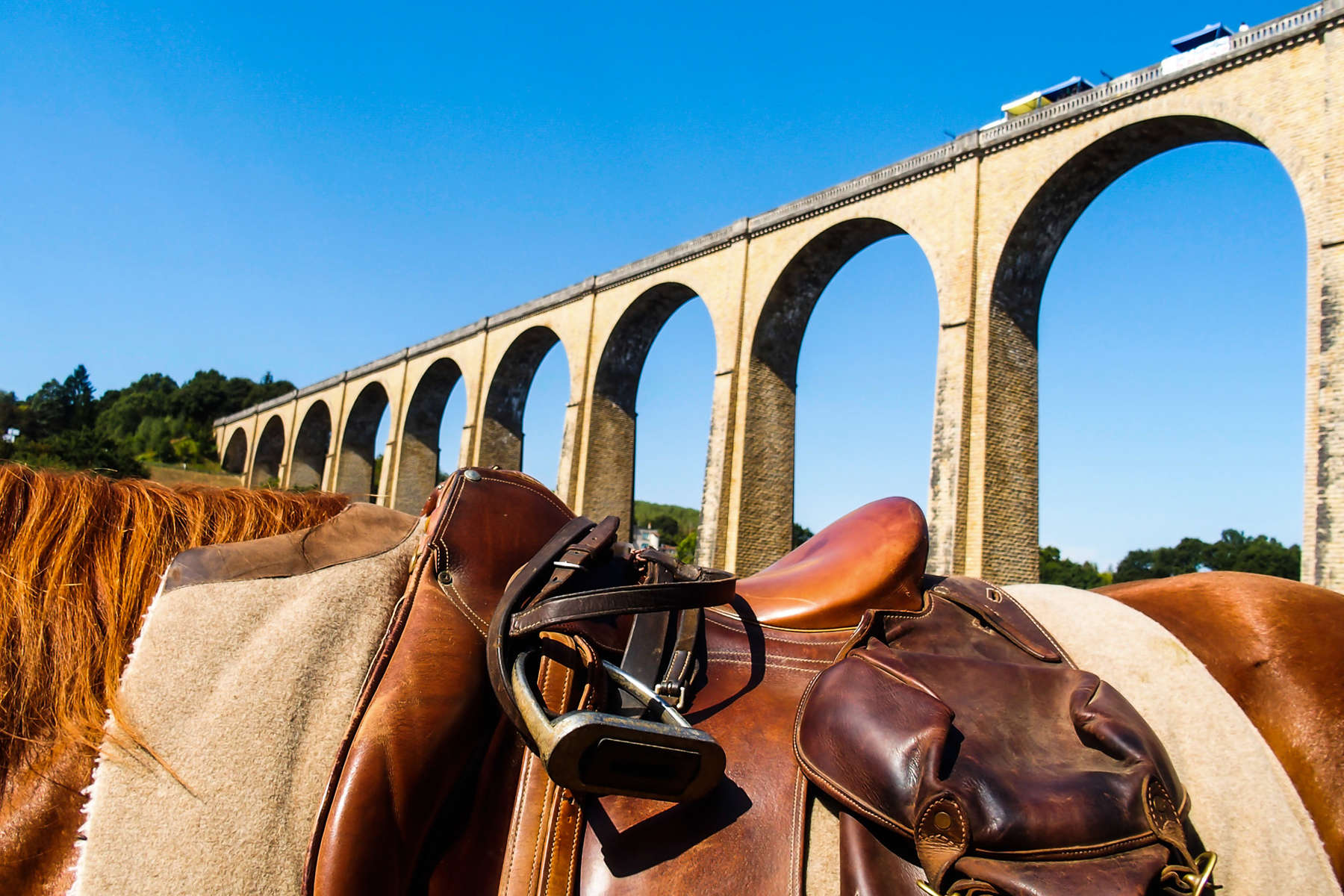Comfort
You will spend the night in comfortable rural inns and gites.
Meals
Your midday meals will be either cold or hot picnics (depending on the season) transported and prepared by the support team.
In the evening, you will enjoy dinners in the gites or inns where you are staying. The dinners will be prepared with local, organic produce specific to the region.
Drinks are included: local apple juice, wine from the Poitou and beer from the local team's own brewery.
Climate
Vienne has a climate that is strongly influenced by oceanic fronts. Its proximity to the Atlantic makes for cool summers and mild winters, with the average temperature for the year coming in at around 11.4°C.
In winter, the temperature varies between 1 and 9°C.
In spring, the temperature varies between 3 and 19°C.
In summer, the temperature varies between 11 and 26°C.
In autumn, the temperature varies between 4 and 22°C.
Tips
In France, it is customary to tip - usually this is by rounding up the price. You may wish to leave a tip with the guide who can split it amongst all members of the team - this is not obligatory and is entirely at your discretion.
Packing list
Head
- A riding helmet is compulsory and we recommend that you take your own to ensure a correct fit. Helmet makers (GPA, HKM, LAS Helmets, Lamicell, Troxel, Equithème) now offer horse-riding helmets that are ventilated, strong, light and comfortable.
- Sunhat for when not riding
- Sunglasses - with a cord attached so they don't fly off when riding
- Buff or bandana for protecting your neck and face from the sun, wind or rain
- Warm hat for cold evenings/days
Upper body
- Thermals in case of cold weather
- Long sleeved shirts provide protection from the sun or extra warmth
- T-shirts
- Lightweight fleece or jumper
- Waterproof jacket (made from Goretex or equivalent) and/ or (depending on the season) a waterproof vest that covers you thighs. No ponchos!!
Legs
- 2 pairs of lightweight, comfortable riding trousers or jodhpurs - we recommend riding in them at home before taking them on holiday to ensure they don't rub
- Waterproof over trousers (made from Goretex or equivalent), especially if you don't have a long waterproof coat
- Casual clothes for the evenings (jeans or walking trousers)
- A swimming costume may be useful for impromptu dips in the lake
- Non-irritant cotton or synthetic underwear
Hands and Feet
- Comfortable riding boots. We recommend short boots with half chaps but you may wish to take long chaps. We don't recommend taking your favourite long leather boots in case they get damaged
- Lightweight shoes or trainers for the evenings
- Several pairs of warm socks
- Gloves - your hands are particularly exposed to the sun, wind or rain whilst riding
Our Recommendations
- Backpacks cannot be worn whilst riding. We recommend a small bumbag or a coat with pockets so that you can carry small items with you during the day (camera, sunscreen, lip balm etc)
- A soothing cream may be useful to treat areas irritated by long hours in the saddle
- We recommend travelling in your riding boots and carrying your hat and some riding clothes in your hand luggage - then if your luggage goes astray you are still able to ride!
Other useful items
- Water bottle (1.5 litres or 2 equivalent)
- Headtorch or small torch for moving around at night - bring spare batteries and bulbs
- Toiletries
- Protein or cereal bars for the longer stretches of riding
- Toilet paper and a lighter to burn it after use
- Swiss army knife or equivalent (in checking-in luggage!!)
- Small plastic bags for you rubbish
- Ear plugs (may be useful)
- Camera and high capacity memory card. Spare battery
- A pair of binoculars
Medical kit
Make sure any allergies (to medication or otherwise) and clearly stated in your medical kit
- Any medication you regularly take
- Painkillers
- Imodium or similar anti-diarrhea medication
- Vitamin C tablets
- Sunscreen and lip balm - should be high factor
- Insect repellent
- Eye drops
- Hydrating/ soothing cream
- Plasters
- Blister plasters in case of any rubs
- Antiseptic cream, plasters, aspirin, anti-histamine, insect-bite salve etc..
- 10cm wide bandage
- Spare prescription glasses/contact lenses
- Re-hydration sachets
- Antiseptic wipes
- Handwash gel
General information
- The airline allows only one bag to be checked-in per passenger. Make sure it weighs no more than 20kg; if it exceeds this weight, you will have to pay excess luggage fees at check-in
- Hand luggage is limited to 7kg (measuring 56 cm x 45 cm x 25 cm), it mustn't contain any sharp objects (knives, scissors, nail file or nail scissors, etc.) and the quantity of liquid allowed per passenger is limited to 100ml per container.
In your hold luggage
- Any liquids, such as shampoo, moisturiser, deodorant over 100 ml and all bottles can be decanted into small, clear, plastic Ziplock bags. We recommend biodegradable washing products where possible.
- We recommend taking a copy of your passport and insurance documents with you in case you lose your originals
- In your hand luggage carry any valuables, such as your camera, ipod, ipad etc.








